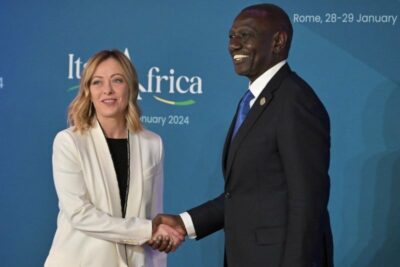Italy’s experiment: The Mattei Plan for Africa Italy’s Prime Minister, Giorgia Meloni, aims to transform Italy’s relations with Africa through a significant foreign policy shift.
Building on Enrico Mattei’s historical approach, the plan seeks to establish stable and enduring connections with African nations, moving away from the current crisis-driven and reactionary trends. The strategy focuses on fostering extensive trade, investment, and cooperation initiatives to address challenges such as undocumented migration.
The Meloni government aspires to draw from Eni’s expertise to achieve these ambitious goals, recognizing the need for a multi-faceted approach. In response to the urgent demand for alternative energy sources due to the Russian-Ukrainian conflict, Prime Minister Meloni, alongside other EU leaders, engaged in energy agreements with North African countries like Algeria, Libya, and Tunisia.
While some controversies arose over these agreements, particularly their linkage to migration control, the government remains steadfast in its commitment. Despite Italy’s current oil and gas sufficiency, migration issues persist, exacerbated by economic shifts and climate challenges in Africa. The Mattei Plan, ratified in early 2024, outlines a four-year investment strategy to enhance African energy infrastructure, promote exports, ensure food security, and sustainably manage natural resources.
The plan’s centralized control within the Chigi Palace has sparked criticism, with concerns raised over its feasibility given Italy’s historical difficulties with Africa and the complex geopolitical landscape of the region. Amidst political instability and external influences in North Africa, including the presence of foreign mercenaries and competing global powers seeking to expand their influence, Italy and the EU face complex strategic considerations.
While France’s reduced engagement in the Sahel region leaves the U.S. as a primary partner, uncertainties persist regarding the region’s evolving dynamics and the effectiveness of external interventions. Regarding funding, the Italian government has earmarked significant resources for the Mattei Plan, with an initial investment of 5.5 billion euros allocated for pilot projects in several African countries.
However, the overall financial requirements for the plan’s success remain uncertain, raising doubts among African leaders about the plan’s sustainability and impact on the continent.

